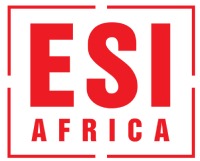Mali: Lack of reliable electricity blocks healthcare access
Power outages are frequent across facilities; health centres experience the highest number of disruptions due to inadequate solar PV installations
Reliable and affordable electricity access is a critical bottleneck in the delivery of quality healthcare in Mali, particularly in rural and remote regions.
This is indicated in the International Renewable Energy Agency (IRENA)’s latest report looking into the energy needs of the different categories of health facilities. It proposes tailored technical solutions for the country.
The report emphasises that inadequate access to electricity restricts the operation of essential medical equipment, the maintenance of cold chains for vaccines and adequate lighting for critical care.
“These challenges are further intensified by climate change: extreme weather events such as droughts and floods disrupt health service delivery, damage infrastructure and increase the incidence of diseases requiring immediate attention,” IRENA said.
The report states that decentralised renewable energy (DRE) systems offer an effective solution to these challenges, forming a vital part of the infrastructure required in the health sector and providing a sustainable pathway to address Mali’s energy needs for healthcare.
“In particular, solar photovoltaic (PV) systems can deliver consistent energy for lighting, refrigeration and medical equipment. For instance, solar-powered vaccine refrigerators are crucial for maintaining the cold chain in remote facilities. Moreover, solar energy facilitates telemedicine, diagnostics and maternal care, ensuring uninterrupted service even during power outages.”
Healthcare in Mali depends on mixed energy sources, yet power cuts continue to hinder critical care
IRENA indicates that most health facilities in Mali rely on a combination of energy sources, primarily solar PV panels equipped with batteries, grid-connected solar power and diesel generators.
“In 54% of the surveyed community health centres, a solar PV system with batteries was the main source of energy, while approximately 95% of referral health centres and hospitals depend on a mix of grid and solar energy, supplemented by diesel generators.
“Power outages are frequent across facilities; health centres experience the highest number of disruptions due to inadequate solar PV installations, while referral health centres and hospitals are the most affected by grid-related issues.”
The report argues that these disruptions pose significant challenges for both patients and staff, particularly in maternal care and vaccine preservation. “A staggering 93% of facilities report compromised services, 96.7% report staff discomfort and 81% note issues with the cold chain.”
For successful implementation of DRE systems in healthcare, IRENA recommends the following:
- Select technologies based on need, efficiency and quality, with a focus on high-quality photovoltaic systems, batteries, inverters and medical equipment, all backed by efficient and cost-effective supply chains.
- Ensure infrastructure is climate resilient, with solar designs incorporating cooling systems to mitigate extreme heat and the operational challenges posed by droughts and floods.
- Electrify facilities in phases, starting with locations that already have good infrastructure and adequate staff, to encourage buy-in and ownership.
- Leverage existing government structures to support the decentralisation of healthcare, thereby bringing health services closer to communities.
- To ensure the effective oversight of technical specifications, system quality and monitoring and maintenance, set up a dedicated Solar Programme Unit within the Ministry of Health and Social Development (Ministère de la Santé et Développement Social, MSDS), receiving technical support from the Ministry of Energy and Water (Ministère de l’Énergie et de l’Eau, MEE).
- Define quality standards for decentralised renewable energy equipment, prioritising local vendors and encouraging partnerships between local enterprises. Provide regular and ongoing training for all stakeholders, with training costs included in the programme budget. Operation and maintenance (O&M) should extend beyond annual contracts; facility staff should receive training in basic maintenance and reporting, guided by clearly defined standard operating procedures. Maintenance responsibilities for various levels of repair should be clarified across facility staff and local technicians.
- Include long-term O&M clauses in contracts and O&M costs in health ministry budgets. In regions experiencing instability, third-party accounts may be utilised to safeguard finances, and the Solar Programme Unit should regularly review fund allocation guidelines to ensure effective and sustainable programme implementation.
- Develop policies to support the sustainable integration of decentralised renewable energy in healthcare facilities. These policies would promote inter-sectoral collaboration, prioritise the maintenance of existing facilities and minimise administrative barriers.
- Finally, investigate innovative delivery models, including public, non-profit and private sector approaches. In Mali, public and non-profit models are the most prevalent, but challenges such as asset maintenance and high upfront costs can be mitigated through supportive policy environments. Partnerships between private sector entities and public healthcare facilities may be explored to balance public health priorities with financial sustainability.
Cover photo: bbmassieu©123rf


